How Do I Avoid Writing Mary Sue?
Kelly Herold of Big A, little a has a new blog called Crossover where she will be blogging about "crossover books"--books that end up with two audiences, adult and YA or adult and even younger. She got the ball rolling with a discussion of America's most recent crossover, Twilight.
The blog comment that really got my mind spinning was Kelly Fineman's regarding Bella being a Mary Sue, who has moved from being a proxy for the author (Mary Sues were originally defined as characters based on authors' idealization of themselves. See the second Urban Dictionary definition) to being a proxy for readers. I think she has a good point.
The other character I've come across recently who seems like a Mary Sue to me is Mary Russell in A Monstrous Regiment of Women. I've heard that the Mary Russell series is also read by both adults and teens.
Mary Russell is a more traditional Mary Sue than Bella Swan in that she has so many superior qualities--intelligence, sophistication, a college degree, money. Anything she puts her hand to she's successful with. Plus she appears as the love interest for a character who already exists (Sherlock Holmes), which is how Mary Sues got their start in fanfiction. Bella, on the other hand, is pretty bland and inept, though she is loved by all. Her love interest is a type that has existed before (a vampire), though Edward, himself, is new to her series.
What both characters have in common is a sexual tension with a male character who is also idealized, one who watches over them while also serving as a threat. In Twilight Edward, who might go mad with lust at any point and kill Bella, controls her by treating her like a child. In A Monstrous Regiment of Women Sherlock Holmes "saves" Mary with physical violence--injecting her with drugs at one point and hitting her at another.
Now, I don't think many professional writers sit down and plan to write Mary Sue characters. (Though maybe we should, since they appear to be very popular.) However, it happens. For example, I've read that some critics believe Harriet Vane in the 1930's Lord Peter Wimsey novels is a Mary Sue for Dorothy Sayers, the books' author.
So my thought now is, if writers use their own experience in their writing (and this one sure does), how do we avoid writing Mary Sues? Do they always appear as a love interest? If I stay away from romance, will Mary Sue characters stay away from me? If I don't write about anyone over the age of thirteen will I be safe? What if I use male main characters? Will that work?
Training Report: Started a new piece of creative nonfiction today! Started one segment for the 365 Story Project. Decided to keep the grandfather around for the year, which will mean big rewrites in the first three months, but, heck, I'll do that next year. Did a little bit of planning for future segments. Hope to do some work this weekend.
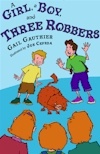
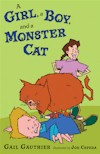
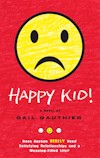
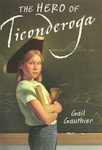
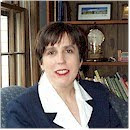



20 Comments:
I'm seeing some Mary Sue witch-hunting out there. People have learned so strongly that Mary Sues are a sign of bad writing that they stamp the label on characters too quickly.
Any sympathetic, capable character might be labeled a Mary Sue, which would leave out a lot of the heroes of literature. And suggesting that an author who expresses a sympathy of feeling or outlook for a character is inserting a Mary Sue is to miss a major point of storytelling: authors are supposed to be able to understand all their characters.
When does my Mary Sue radar go off? When the character is "too perfect" and idealized. It doesn't mean they are perfect -- just that everyone in the story sees them as so. When all the boys fall in love for no apparent reason. When there are characteristics that don't add up to a character (for example, Bella's clumsiness to make her 'normal'). When there is a "tragic backstory" that has little or nothing to do with the plot or character except to have other characters/reader learn about it, feel sorry for the person, and somehow that sorry translated into liking the person (Bina in Madonna's books).
It's not that Mary Sues are a sign of bad writing...it's that bad writing creates Mary Sues. For example, Ally Carter's Cami (Gallagher Girls) could easily fall into the MS category (tragic backstory, boys falling for her, dream talents & skills) but she doesn't because of Carter's skills; the backstory has to do with the present story, it's just 2 boys painted in realistic romances, and her talents/skills are shared by a school full of other girls.
Heh. Oooh, boy, are you treading on thin ice with the Peter Wimsey fans! Harriet Can Do No Wrong, or hadn't you heard?
This is absolutely fascinating to me -- and in my own writing, I've seen the Mary Sue-ness, in writing a character as proxy for the author, not the reader, evolve through the years. My more self-absorbed adolescent writing definitely showed those horrible Mary Sue tendencies, and what I watch for now is a character who never takes any risks, never gets hurt, never completely loses it emotionally -- when I know I'm protecting a character by making her a mixture of Clark Kent and Captain Americana, I know I'm Mary Sue-ing, and I have to draw up those mental divorce papers all over again.
It happens several times a novel. Here's hoping it gets easier.
I find the large number of different types of Mary Sues overwhelming. And then all the different traits! Are all these characters with their various traits really Mary Sues or just stereotypes?
For myself, my Mary Sue radar goes off when a book has no strong theme, nothing unusual to say, and just exists to provide a hero (particularly an already established hero or hero type with a following) with an erotic relationship with a female character that female readers will want to identify with.
The sexual attraction is a red flag for me.
Bella is a bizarre Mary Sue because I have trouble understanding why female readers would want to identify with her. She may represent what female readers believe is their reality--clumsy, bland, no interests--rather than representing some ideal female readers wish they could attain.
"Harriet Can Do No Wrong"--perhaps the sign of a Mary Sue?
I read suggestions that Sayers had become too attached to her detective and created Harriet Vane as a stand in for herself to serve as his soulmate/love interest long before Mary Sue was a gleam in anyone's eye.
With Bella, a few things are going on. Yes, she has Mary Sue tendencies; but I also think part of the appeal has to do with Bella's beigeness; it's easy for a reader to project themselves onto her, because so little is given to counter/ prevent a reader from doing so. And that (to me) isn't a Mary Sue issue. One could argue it's poor characterization; but the appeal of the book makes me think it's actually brilliant characterization. She's like a coloring book -- the reader can color themselves onto her.
Re Bella as Mary Sue or author's projection; Robert Pattinson said "When I read it I was convinced Stephenie was convinced she was Bella and it was like it was a book that wasn’t supposed to be published. It was like reading her sexual fantasy, especially when she said it was based on a dream and it was like, ‘Oh I’ve had this dream about this really sexy guy,’ and she just writes this book about it. Like some things about Edward are so specific, I was just convinced, like, ‘This woman is mad. She’s completely mad and she’s in love with her own fictional creation.’ And sometimes you would feel uncomfortable reading this thing.”
I think Mary Sues are an extension of, or female counter part to Frye's classification of characters based in how well they fit Campbell's hero cycle.
Perhaps Bella falls into the ironic category. Readers like her because she seems like kind of an ill equipped underdog, but for some reason she is well liked by other characters in the story. People tend to want to root for the underdog or the "normal" character.
From a Freudian aspect, perhaps fans like Bella so much because she does represent a fantasy. Yes, it was her dream upon which the author based the book, but is it unreasonable to believe that other women (or men for that matter) out there have that same fantasy? Twilight does what fiction should do, in that respect, when it allows readers to participate in a fantasy from a safe distance.
Furthermore, isn't Mary Sue-ing and idealized characterization of males normal? Doesn't most fiction create some form of idealized characters? Is it that some forms of idealization are simply more acceptable than others? Does it really matter on whom the idealized character is based?
Idealized characters are abound in fiction, but perhaps they just aren't always the protagonist or hero.
One of the best articles about Mary Sues appears here: http://www.merrycoz.org/papers/MARYSUE.HTM
It examines childrens writing, going back over 150 years. It was originally written 10 years ago, so some of the "current" MS bits are dated.
sorry to be all linky, but TOR has a conversation about this, from a post on May 18: http://www.tor.com/index.php?option=com_content&view=blog&id=28668
This is a fascinating discussion--thanks, Tanita and Liz B., for leading me here. I liked Gail's comment about Bella: "She may represent what female readers believe is their reality--clumsy, bland, no interests--rather than representing some ideal female readers wish they could attain." I think that has some truth. Bella sees herself as ordinary, boring, nothing particularly stands out, yet at the same time she's reassuring to those female readers who identify with her, because she's obviously much more desirable and interesting than she herself thinks, judging from the various human and non-human males who can clearly see her inner beauty shining forth! :D
I also agree with JL and Gail that it seems to be a label slapped very quickly in a myriad of forms onto anything that smacks of traditional, well-established character types, regardless of whether we're crossing into actual Mary Sue territory. A "type" isn't necessarily the same thing as a Mary Sue. And frankly, there's not necessarily anything wrong with making use of character types, particularly outside of literary fiction. The truth is, they sell, and outside of marketing jargon, they often appeal in fundamental ways to the human basis of storytelling.
It's when that type turns into pure wish fulfillment that it becomes a self-indulgence rather than a sincere effort to tell a story to others.
Thanks for the links, Liz. I particularly liked the Tor post because it dealt with the question of when a Mary Sue works.
And that quote from Robert Patterson regarding his response to reading Twilight--I can't recall when I've read of an actor reacting so strongly to reading the original source material for his part. (So strongly that at first reading I didn't notice how often he used the word "like.")
Lizzy--I agree that Twilight allows readers to take part in a fantasy from a safe distance. I think that is an important and enjoyable function of reading. For me, personally, the character of Bella becomes very disturbing in the later books, and I have to wonder what her success has to say about our culture right now. Why do so many women readers buy into her?
I must say that after all this discussion and reading about Mary Sues, if I were writing adult fiction with characters who were adults, as I am, I'd be paralyzed right now. At this moment, everyone seems close to a Mary Sue to me.
We saw Star Trek this afternoon, and a family member who has been following this discussion wondered--jokingly--if Uhura had become a Mary Sue. I liked what they did with the character in the movie and never gave a thought to the possibility of her being a Mary Sue. But after he brought it up...
Thank you very much for this discussion. Maybe I'm becoming over-sensitive, but what stood out for me in the Wikipedia article and in the Pflieger piece is the suggestion that women characters who don't stay inside the lines are "Mary-Sue."
Male characters have been described with hyperbole--their jutting chins, their facial scars that are sexy, not disfiguring, their hair, their eyes. I wonder what characters get labeled Mary Sue because we aren't willing to suspend our disbelief so far as to allow that *a woman could do that* whatever *that* is.
Yes, Pflieger's article left me feeling that any female character who has anything distinctive about her is a potential Mary Sue. (The male equivalent is a Gary Stu, but I don't think we hear as much about them.) I think the net is being cast very wide now.
If a Mary Sue is the author inserting herself into a work, does a Mary Sue author need to be a female? Does a Gary Stu author need to be a man? I ask, because occasionally I hear of Edward in Twilight being a Gary Stu. (Though I think he's just a stereotype.)
As I said, for me for a character to be a Sue/Stu character, there must be the presence of romance--the wish fulfillment of getting some kind of unattainable guy. Are there unattainable women in fiction for whom a male writer could create a perfect male character who would win the heroine's heart?
I'm thinking someone like Buffy, maybe. If a male character appears who is so superior that he wins Buffy away from Angel and Spike, that would be a Gary Stu in my book. Oh, wait! They did that in that show, didn't they, with the secret agent guy during the college years.
I have read stories with both-- male or female--protagonists that made me feel like a I was reading the author's sex fantasy. Let me just say, ick.
Even if there isn't any sex in the story--I am not interested in reading someone else's fantasy about that time they singlehandedly showed EVERYBODY and incidentally saved the world.
But the kind of character who is made of awesome and rules the world is my favorite kind. I don't want a "real" person. I like the superman, as long as I feel that it is my story and I am reading it alone.
Does it seem like these characters used to be seen as aspirational and now they are seen intimidating and so people reject them? Will Stanton in The Dark is Rising, for example: Oh Hai, Thrs. I can hz superpower at 11?
I hear him dismissed now as a Mary-Sue. I wonder if readers are more cynical and they want their fictional characters cut down to size. And i wonder if it had been Willa Stanton if anyone ever would have accepted her at all.
"I have read stories with both-- male or female--protagonists that made me feel like a I was reading the author's sex fantasy. Let me just say, ick."
If I say, "Ick," my Mary Sue Radar goes off.
Wow. What a fantastic discussion! (I've missed you all!)
I'd agree with Gail that the "ick" factor plays a large role for me, but I also find that my "ick" threshold becomes lower the older I get (and the more I've read)
And now I can't wait to write another one of my own sexual fantasies - love the stuff! Go ahead and yuck away, it makes for terrific blogging.
This is a great discussion! Mary Sues are also fuel for resentment. When people read all about the perfect character, they tend to resent the character because they are not as perfect. When a Mary Sue has to overcome some kind of problem or challenge, I find myself not even rooting for them.
My Mary Sue radar does not just go off when the character is too perfect, but when others view them as perfect and when everyone likes them, as mentioned before. Sometimes it's not all the character's fault.
As for people liking Bella, I know a lot of people who don't. Namely, my friends. I think some of the main reasons girls in particular like her so much is because she's with Edward. Is a hot, strong, protective and at the same time dangerous guy not in many girl's fantasies? I agree that Bella is indeed like a blank coloring page that readers can color themselves into, and be with Edward.
I also wonder if Twilight's publicity helped make Bella a Mary Sue. To me it seemed that people didn't become so objected towards her until eveyone else started loving her.
Something I do to avoid writing Mary Sues is sitting down and listing all their good qualities, and their flaws. See if the length of the two lists compares. Maybe do some addition and subtraction.
You know, I think one big problem writers come across is the fact that whenever you write a character, you will have to at some point give them a quality that labels a character as a sue or an anti-sue on some litmus test. I think we've started painting the line dividing sues and characters too broadly. I mean, I think a huge chunk of all the characters I've seen out there are in sues, I mean...all the Disney princesses are sues, Louis Lane is a sue, Superman is a Gary Stu, but what makes them sues? Let's think about it, they always win, they look perfect, they are good at near everything, they have rigid morals, they don't have money problems. Now look again, Batman, also is all of those things, but he's not a sue, do you know why? Batman has issues, he has doubts, his problems are relevant to the plot, they're why he does what he does, he unrealistically wins all the fights, but he also sleeps with Catwoman;, a bad guy, Batman also can be a jerk, Batman does stupid things, Batman snaps and kills the Joker over Jason Todd, Batman isn't a sue because he can screw up, and realistically so, he's not a sue because he is realistically miserable. This is where the line where between a sue and a character is drawn; how the react to the story, how normally they react, how they can be immoral and moral at the same time, how they act human and not angelic or demonic.
Post a Comment
<< Home